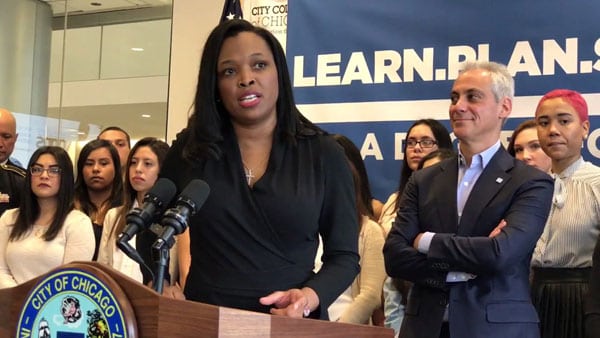
May 29, 2018; Chicago Sun-Times
The end of another school year doesn’t mean a vacation from public scrutiny for Chicago’s public school system. Two new controversies emerged last week that illustrate how difficult strong leadership is. In one case, a former board member has been accused of significant conflicts of interest, and in the other, the district’s CEO has been drawn into the upcoming mayoral election campaign. In both instances, the issue is not just the letter of law and policy being observed, but how board members and professionals understand the overall context of their work and the higher requirements for leadership.
If a basic rule of good governance is avoiding conflicts of interest, Chicago’s schools are struggling to get a passing grade and are learning that wise decisions must accompany well-written policies. The district’s inspector general, as reported by the Chicago Sun-Times, released a report that accuses former school board member Deborah Quazzo of violating “the school system’s ethics code by talking up her companies’ products to CPS principals and introducing them to company representatives—which she at first denied to [CPS Inspector General Nicholas] Schuler she’d done but acknowledged after being shown emails proving that.” In total, eight companies related to Quazzo received contracts of more than $5 million from Chicago Public and Charter schools while she served on the Board.
Quazzo appears to have been technically in line with the district’s COI policies, which mirror those of many nonprofit organizations. She sought guidance from the mayor’s office, disclosed her ownership in these firms, did not take part in the board’s consideration of these contracts, and did not vote to approve them. But meeting these common expectations did not stop her from trying to influence the decision in her firms’ favor. She did not stop offering guidance to those trying to win contracts, nor cease influencing how specifications were shaped—neither apparent technical violations of the existing COI policies.
According to the IG, these policies were flawed and did not conform to the higher expectations of Illinois law. The board member’s actions “facially violated the Illinois School Code’s prohibition on school board members having an interest in board contracts, which would be a Class 4 felony.” The consequent result was that a sitting board member who was “a large…investor who had just doubled her investment in the company—was trying to help it get more traction in CPS, the company was actually engaged in improper dealings with the CEO and should not have been awarded the district-wide contract, and the board member should not have been pushing that company. The combination of the two is horrible.”
The district says it will revise its policies.
Sign up for our free newsletters
Subscribe to NPQ's newsletters to have our top stories delivered directly to your inbox.
By signing up, you agree to our privacy policy and terms of use, and to receive messages from NPQ and our partners.
Meanwhile, advertising for students is a necessary part of the modern, choice-based educational environment. In newly-released TV commercials, the district’s CEO, Janice Jackson, plays a starring role, extolling the benefits of the district’s schools.
Now, finding donors to offset the production costs was a wise move for a cash-strapped district. But when a hotly contested mayoral election is months away, and one major issue in that election is how well the incumbent mayor has managed the school district, was it a good decision to get that funding from a nonprofit organization, Progress Chicago, that’s backed by close political supporters of incumbent mayor Rahm Emanuel?
From the perspective of Lori Lightfoot, who will be on the ballot challenging Emanuel, this is clearly electoral politics and not student recruitment advertising. She described the ads in comments to the Chicago Sun-Times: “It is troubling that at a time when all Chicagoans are hoping that CPS can move past the scandals and constant reshuffling of leadership, that the new CEO (the fifth one in the past six years) took time to participate in what is clearly a political ad for the Mayor of Chicago—the man she reports to directly.”
Like many nonprofits, CPS policy forbids its employees in officially taking part in political activities. So, are these ads just ads, or blatant political activity? Even if they were mere advertisement, were greater discretion and situational awareness required?
CPS does not need more public controversy—no organization does—and meeting the letter of the law may not be enough. If CPS has anything to teach, that lesson deserves to be front and center.—Martin Levine













